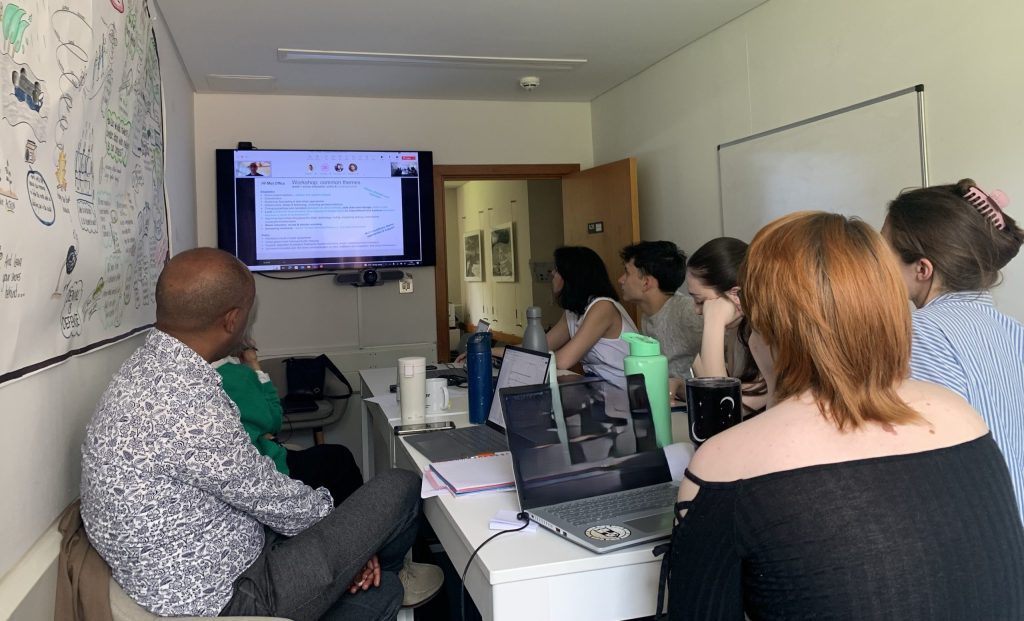
Engaging with Decision Makers (EwDM) is a new training initiative from the Walker Academy. It was launched to better equip postgraduate students with the skills they need for real world research-to-policy engagement. The training was delivered on 13, 15, 20 and 22 May 2024.
EwDM is a 4-day programme of facilitated in-person training at the end of which students are equipped with a series of practical tools that support research design, maximising policy impact, communication across disciplines and stakeholder groups, and media work.
Attendance was in person and all students were actively engaged and participated in a range of group activities.
The course was designed around the theme ‘Achieving policy impact through your PhD’ and involved work on the following topics
- Co-production and communication
- Synthesising evidence from across disciplines
- Stakeholder mapping
- Power dynamics and policy influence
We were delighted to welcome a guest speaker, Dr Pete Falloon, who provided direct, real-world insight into this topic, through the lens of climate science in the UK government policy process. Dr Pete Falloon leads the Met Office Hadley Centre ‘Climate Service for Defra on Food, Farming and Natural Environment’.
We also convened an impressive panel of external speakers who provided their insights and experience relating to the policy making process. Panel members represented the UK climate-policy advocacy sector, Climate action in the UN through the UNHCR, climate adaptation work in the consultancy sector and international humanitarian work.
- Heather Plumpton, Senior Policy Analyst, Green Alliance
- Olga Buto, Consulting Manager, Pegasys Consulting
- Jana Birner, Associate Climate Action Officer, UNHCR, the UN Refugee Agency
- James Acidri, Global Head, Humanitarian Food Security and Livelihoods, Save the Children International Foundation
100% of students felt that the time they invested in the training was worthwhile, and all agreed that the quality of the training was excellent.
“It has broadened my mind to areas of science outside my research and future career prospects. It has also made me think more about the impact of my research.”
Students reported that the course was well structured, diverse, and engaging. Most students found the information presented by our guest speakers invaluable, emphasizing the importance of communication and stakeholder collaboration.
“The most valuable aspect was the guest speakers and panels that were invited to talk to us – I thought it was great to hear the tips and tricks that they use on an everyday basis with decision makers as well as be able to ask them questions directly. I also liked reading the indigenous group’s letter, it was a great real-world example of the theory that we had been learning.”
The students found the training impactful and reflected on what they would take forward into their own research practice.
“I will definitely integrate a lot of the tips and tricks that I was taught in the lesson – I particularly like the conversation around talking about our project to the general non-expert public, I believe that will be very useful whenever I have to engage with decision makers.”

